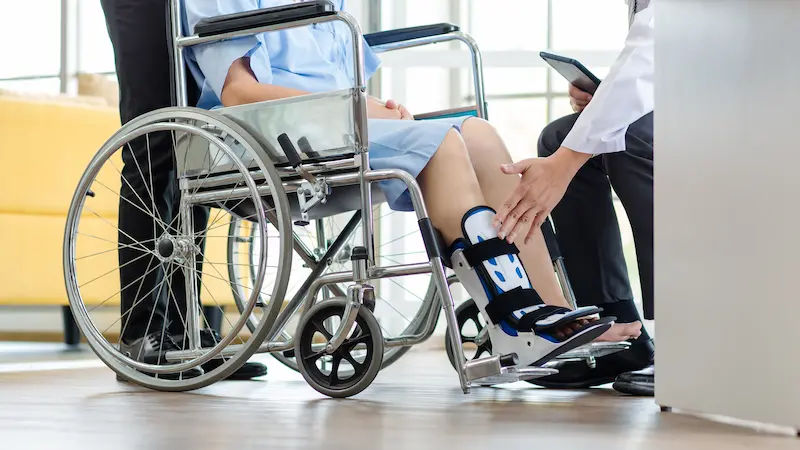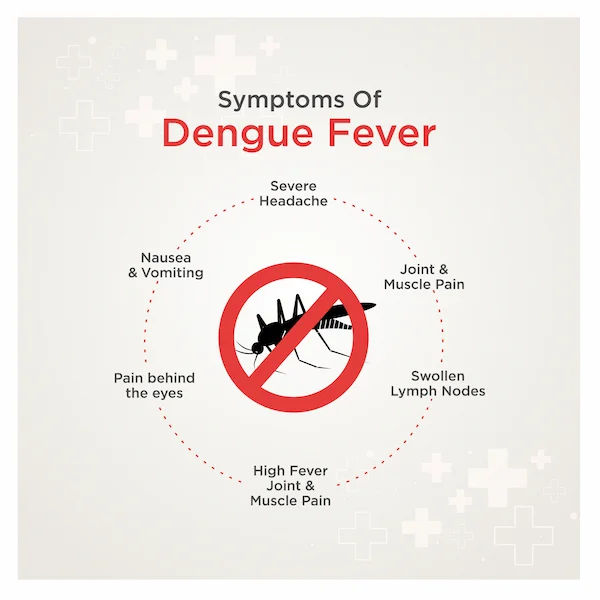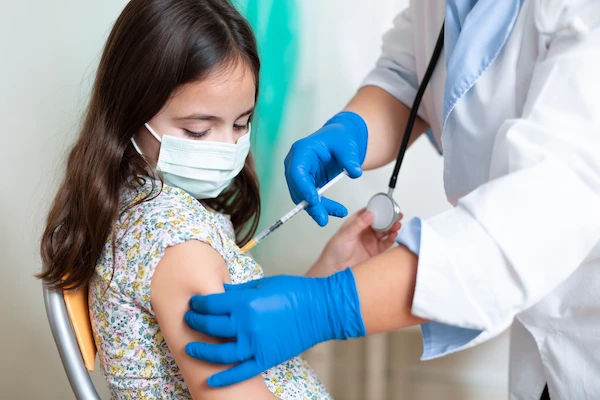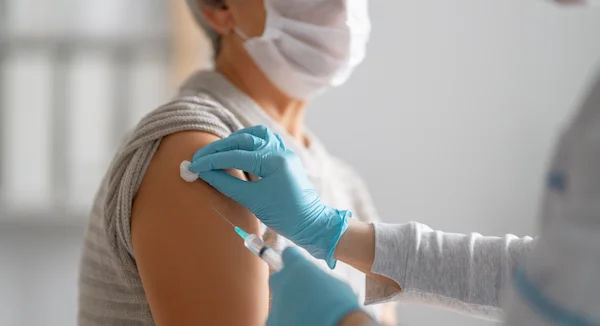Why Vaccines Are Important: A Guide to Protecting Your Health
Know about vaccines, how they work, benefits of vaccination , vaccinations given by age, risks, its role in eradication of diseases.


Introduction
Imagine a world where polio paralyzes children, smallpox scars faces, and measles outbreaks are a common fear. This was the reality before the widespread adoption of vaccines, one of modern medicine's most profound achievements. Vaccination is more than just a shot; it's a powerful shield that protects us individually and collectively from devastating diseases. Understanding the importance of this medical marvel is crucial for making informed decisions about your health and the well-being of your community. This guide will demystify how vaccines work, explore their immense benefits, address common safety concerns, and highlight your role in this ongoing public health success story.
How Do Vaccines Actually Work? Training Your Body's Defenses
Vaccines are often called a miracle of modern medicine, but their function is based on elegant, natural science. They work by harnessing the innate power of your own immune system, teaching it to recognize and combat harmful pathogens like viruses and bacteria before they can cause serious illness.
The Role of Your Immune System
Your body's immune system is a sophisticated defense network. When a foreign invader (antigen) enters your body, your immune system springs into action. It produces proteins called antibodies specifically designed to target and neutralize that particular antigen. After the infection is cleared, your body keeps a few of these antibodies as "memory cells." If the same pathogen invades again, these memory cells recognize it immediately and mount a rapid, powerful response, often destroying the invader before you ever feel sick.
Vaccines as a "Training Simulation"
A vaccine is essentially a controlled training exercise for your immune system. It contains a weakened or inactivated form of a germ, or even just a small, harmless piece of it (like a protein or sugar). This version cannot cause the actual disease. When you receive a vaccine, your immune system identifies these components as foreign and creates antibodies and memory cells specific to them. This process is why you might experience mild side effects like a low-grade fever or sore arm—it's a sign your body is building protection.
Building Immunological Memory
The ultimate goal of vaccination is to establish this robust immunological memory. This means your body is prepped and ready for a real encounter. For example, the MMR (measles, mumps, rubella) vaccine provides such effective memory that over 97% of people who receive two doses are protected for life. This long-term preparedness is what makes vaccines so effective at preventing disease outbreaks.
The Multilayered Benefits of Vaccination
The advantages of vaccination extend far beyond the individual, creating a ripple effect of protection throughout society.
Personal Protection: Shielding Yourself from Serious Illness
The most direct benefit is to you. Vaccines significantly reduce your risk of contracting preventable diseases, many of which can lead to severe complications, long-term disability, or even death. The COVID-19 vaccines, for instance, dramatically lowered rates of hospitalization and death. Similarly, the HPV vaccine protects against cancers caused by the human papillomavirus, and the flu vaccine prevents millions of illnesses and thousands of deaths each year.
Consult Top Specialists for Personalised Tips
Community Shield: The Power of Herd Immunity
This is one of the most critical aspects of public health. Herd immunity, also known as community immunity, occurs when a high percentage of a population is vaccinated, making it difficult for a disease to spread. This provides indirect protection to those who cannot be vaccinated, including newborns, individuals with certain medical conditions (like cancer patients on chemotherapy), and those with severe allergies to vaccine components. When vaccination rates drop, herd immunity breaks down, and outbreaks can occur, putting the most vulnerable at risk.
Economic and Social Advantages
The benefits of childhood immunization and adult vaccination have massive socioeconomic impacts. Vaccines reduce healthcare costs by preventing expensive treatments and hospitalizations. They also ensure children can stay in school and adults can remain productive at work, preventing lost wages and supporting economic stability. On a global scale, vaccines are a cornerstone of healthy societies, allowing for better travel, trade, and overall quality of life.
Addressing Common Concerns: Vaccine Safety and Development
It's natural to have questions about what you put into your body. Vaccine safety is, and always has been, the highest priority for health authorities.
The Rigorous Vaccine Approval Process
Before a vaccine is ever available to the public, it undergoes a rigorous multi-phase testing process that can take years. This includes large-scale clinical trials with tens of thousands of volunteers to assess safety and efficacy. In the case of COVID-19, global cooperation and unprecedented funding allowed these phases to be conducted simultaneously without sacrificing scientific integrity. After approval, monitoring continues indefinitely through systems like VAERS (Vaccine Adverse Event Reporting System) and the CDC's V-Safe to track any potential side effects.
Common Side Effects vs. Serious Adverse Events
Most vaccine side effects are mild and temporary, such as soreness at the injection site, fatigue, or a mild fever. These are normal signs that your body is building protection. Serious adverse events are extremely rare. For example, the risk of a severe allergic reaction (anaphylaxis) is about 1 in a million doses. The benefits of vaccination in preventing disease and its complications overwhelmingly outweigh the minimal risks for the vast majority of people.
Debunking Persistent Vaccine Myths
Misinformation can spread quickly. To be clear:
Vaccines do not cause autism. The original 1998 study that proposed this link has been thoroughly debunked and retracted.
Vaccines do not overload a child's immune system. A child's immune system successfully handles thousands of antigens every day from food, dust, and play; vaccines add only a negligible number.
Natural immunity is not always safer. Getting the disease itself often provides immunity, but the risks—such as brain damage from measles or paralysis from polio—are far greater than any risk from the vaccine.
If you have specific concerns about vaccine ingredients or your medical history, it's best to consult a doctor online with Apollo24|7 for personalized advice.
Vaccination Through the Ages: From Infancy to Adulthood
Vaccination is a lifelong journey, not just a childhood event. Staying up-to-date with your immunization schedule is key at every stage of life.
The Critical Childhood Immunization Schedule
The CDC-recommended schedule for children is carefully designed to provide protection when they are most vulnerable to specific diseases. Vaccines for hepatitis B start at birth, with crucial protection against diseases like whooping cough, polio, and measles given in the first two years of life. This schedule has been proven over decades to be the safest and most effective way to administer vaccines.
Why Adults Need Booster Shots and Vaccines Too
Immunity from some childhood vaccines can wane over time. Booster shots, like the Tdap (tetanus, diphtheria, pertussis) vaccine every 10 years, are essential to maintain protection. Adults also need vaccines like the annual flu shot, shingles vaccine (recommended for adults over 50), and pneumococcal vaccines (for seniors 65+). Are vaccines safe for adults? Absolutely, and they are a critical component of healthy aging.
Special Recommendations for Seniors and At-Risk Groups
As we age, our immune systems weaken, making us more susceptible to severe infections. Vaccines for influenza, pneumonia, and shingles are highly recommended for older adults. Similarly, individuals with chronic conditions like diabetes, heart disease, or lung disease are at higher risk for complications from vaccine-preventable diseases and should ensure they are fully protected. Apollo24|7 offers convenient home collection for tests like HbA1c for diabetics, who are a key group that must stay current with vaccinations.
The Staggering Impact: Vaccines and Eradication of Diseases
The proof of vaccination's importance is written in the history books of medicine.
The Victory Over Smallpox
Smallpox was a devastating disease with a 30% mortality rate, killing hundreds of millions of people in the 20th century alone. Through a relentless global vaccination campaign, smallpox was declared eradicated from the world in 1980. It remains the only human disease to be completely wiped out, showcasing the ultimate power of vaccines.
The Near-Eradication of Polio
In the 1950s, polio paralyzed hundreds of thousands of children every year. Today, thanks to vaccines, polio has been eliminated from most of the world, with only a few endemic countries remaining. This is another stunning public health victory driven by vaccination.
Controlling Measles, Tetanus, and Flu
While not eradicated, vaccines have brought many other diseases under control. Measles cases dropped by 73% worldwide from 2000-2018, preventing an estimated 23.2 million deaths. Tetanus, a deadly infection, is now rare in countries with robust vaccination programs. Annual flu vaccines, while less than 100% effective due to the virus's ability to mutate, prevent millions of medical visits and hospitalizations each year.
Conclusion
The evidence is clear and overwhelming: vaccination is a cornerstone of individual and public health. It is a testament to human ingenuity, turning once-feared diseases into preventable footnotes in history. The importance of getting vaccinated cannot be overstated—it is a personal decision that carries profound collective consequences. It is a shared responsibility that has enabled modern societies to thrive. Review your vaccination records, talk to your healthcare provider about any questions you have, and make the choice to protect yourself and your community. Your actions help write the next chapter in the incredible story of disease prevention.
Consult Top Specialists for Personalised Tips

Dr. Anand Ravi
General Physician
2 Years • MBBS
Bengaluru
PRESTIGE SHANTHINIKETAN - SOCIETY CLINIC, Bengaluru

Dr. Vivek D
General Physician
4 Years • MBBS
Bengaluru
PRESTIGE SHANTHINIKETAN - SOCIETY CLINIC, Bengaluru

Dr Syed Mateen Pasha
General Physician
2 Years • MBBS
Bengaluru
PRESTIGE SHANTHINIKETAN - SOCIETY CLINIC, Bengaluru

Dr. Syed Ismail Ali
General Practitioner
7 Years • MBBS
Hyderabad
Apollo 24|7 Clinic, Hyderabad

Dr. Harshendra Jaiswal
General Physician/ Internal Medicine Specialist
12 Years • MBBS , MD (General medicine)
Kolkata
108 DHANA DHANVANTARI Clinic, Kolkata
(25+ Patients)
More articles from Preventive Treatment
Frequently Asked Questions
Is it better to get natural immunity than immunity from a vaccine?
No. While getting the disease often results in immunity, the risks are far greater. For example, measles can lead to pneumonia and brain swelling, and chickenpox can lead to bacterial infections and shingles later in life. Vaccines provide a safe way to develop immunity without the dangerous consequences of the actual disease.
Can a vaccine give me the disease it's supposed to prevent?
No. Most vaccines (e.g., inactivated or mRNA vaccines) do not contain a live virus and cannot cause the disease. Some vaccines use a weakened (attenuated) virus that cannot cause illness in people with healthy immune systems. You might experience mild, flu-like symptoms as your immune system responds, but this is not the disease itself.
Why do we need a flu shot every year?
Influenza viruses mutate very quickly. Each year, scientists predict which strains are most likely to circulate and formulate the vaccine to target those specific strains. The immunity you get from a flu shot also declines over time, so an annual shot is needed for the best protection.
I'm healthy and young. Do I really need to be vaccinated?
Yes. While being healthy helps your body fight illness, vaccines provide targeted protection that even a strong immune system lacks without prior exposure. Vaccination also protects those around you who may not be as healthy or able to get vaccinated, helping to stop the spread of disease.
How can I find out which vaccines I've had or which ones I need?
You can ask your primary care doctor or your parents for your immunization records. Your state may also have an immunization information system (IIS) that healthcare providers can access. The best course of action is to consult a doctor online with Apollo24|7; they can review your history and recommend a schedule based on your age, health status, and lifestyle.




